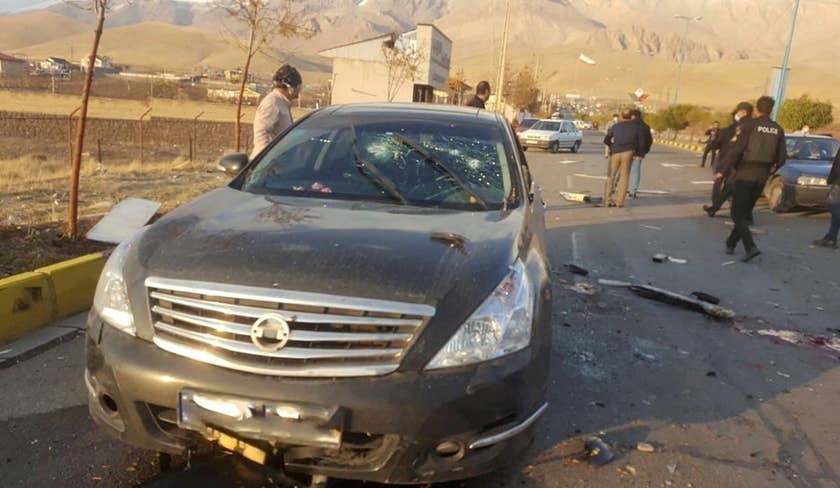Iran Denies Report Saying Mossad Assassinated Nuclear Scientist

Iran has denied a report that the Mossad was behind the assassination of its senior nuclear scientist, Mohsen Fakhrizadeh, on November 27.
Iran’s Foreign Ministry spokesperson Saeed Khatibzadeh said that a New York Times attributing the hit to the Israeli espionage agency was wrong.
In a press briefing, Khatibzadeh denied the report’s claims, saying that Iranian intelligence has all the details of the incident including all the people involved.
According to the Times, Fakhrizadeh was assassinated in Tehran with a modified Belgian-made FN MAG machine gun attached to a robot and powered by Artificial Intelligence (AI).
In a piece reviewing the hit on Fakhrizadeh, dubbed “the father of the Iranian nuclear bomb,” the newspaper claiming that Israel was behind his death. The report further alleged that Israel had wanted to eliminate the scientist for 14 years, and had planned to do so in 2009 in Tehran, but the Mossad intelligence agency called off the operation at the last moment because its “plot had been compromised.”
While the Islamic republic has accused Israel – long suspected of killing several Iranian nuclear scientists a decade ago – of having a hand in Fakhrizadeh’s elimination. Yerushalayim has remained silent on the matter.
According to the NYT, in July 2020, the Mossad allegedly carried out its mission using a sniper machine gun that was operated by an agent from more than 1,000 miles away. Fakhrizadeh and his wife were driving in a car outside Tehran, along with a team of armed guards in escort cars, when the scientist was assassinated using a “killer robot.”
The entire operation was conducted by remote control, according to the story, and the hit squad that had planned the attack had already left Iran by the time the robot was activated.
According to the newspaper, the straight-out-of-science fiction plot was confirmed by senior Israeli, Iranian and American officials, “including two intelligence officials familiar with the details of the planning and execution of the operation, and statements Mr. Fakhrizadeh’s family made to the Iranian news media.”
The New York Times attributed the success of the assassination to “extensive planning and surveillance by the Mossad.” It also accused Iran’s Revolutionary Guards for security failures and even criticized Fakhrizadeh for refusing to take proper measures to protect himself from being assassinated.
According to the paper, Fakhrizadeh’s elimination was “the debut test” of a computerized, artificial inteligence-assisted sharpshooter that has multiple-camera eyes and is operated via satellite and capable of firing 600 rounds a minute, a weapon that is “likely to reshape the worlds of security and espionage.”
Originally there were reports of witnesses seeing two of the assassins at the scene, but two days after the assassination, the Iranian Revolutionary Guards Corps-affiliated Fars News reported that there had been no assassins on the scene and the weapon was operated from afar.
To Read The Full Story
Are you already a subscriber?
Click "Sign In" to log in!

Become a Web Subscriber
Click “Subscribe” below to begin the process of becoming a new subscriber.

Become a Print + Web Subscriber
Click “Subscribe” below to begin the process of becoming a new subscriber.

Renew Print + Web Subscription
Click “Renew Subscription” below to begin the process of renewing your subscription.












